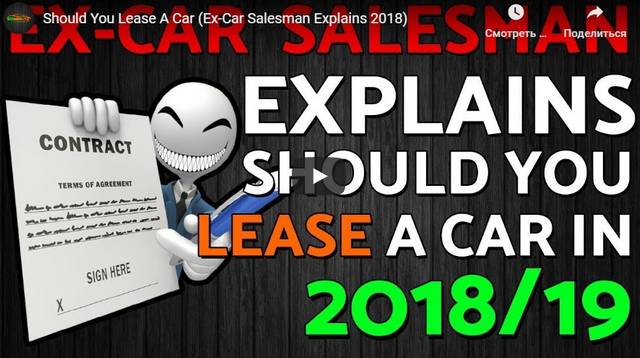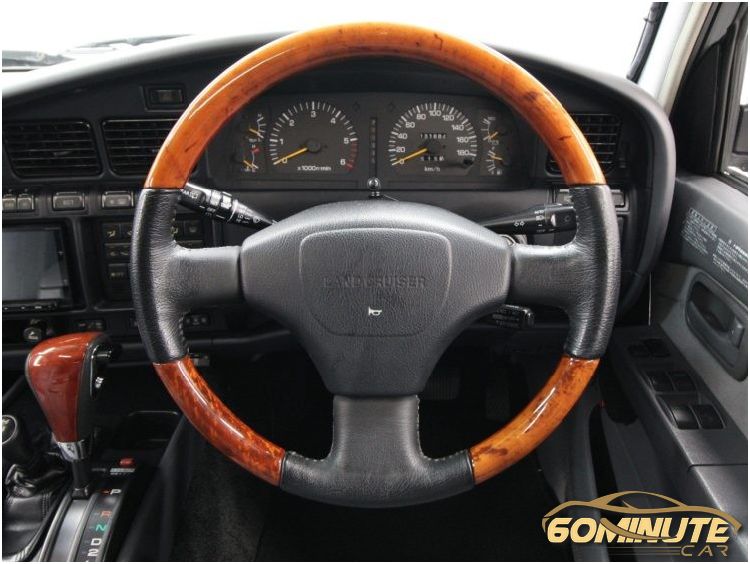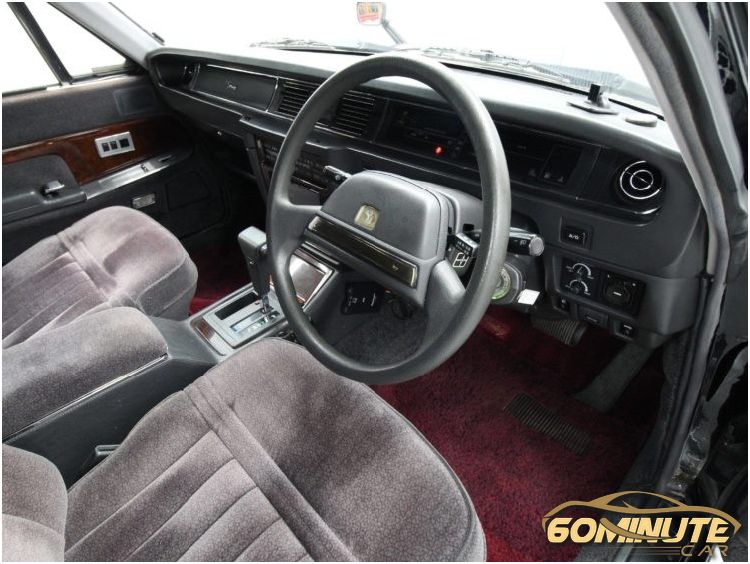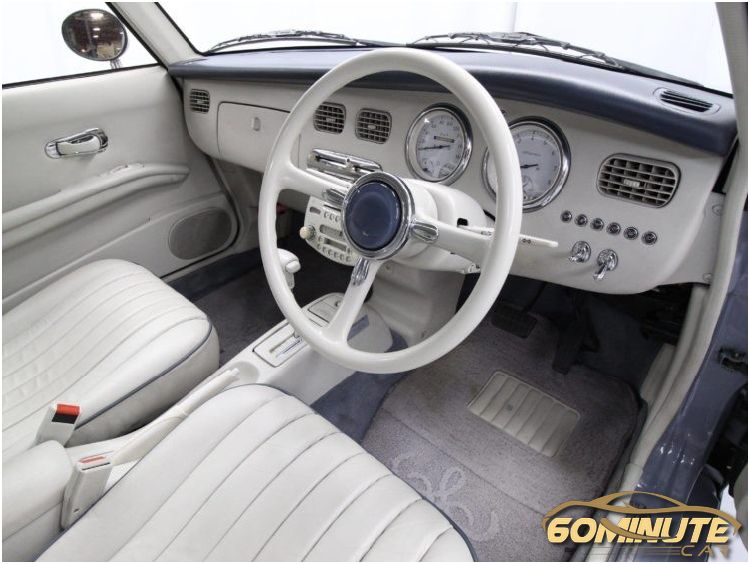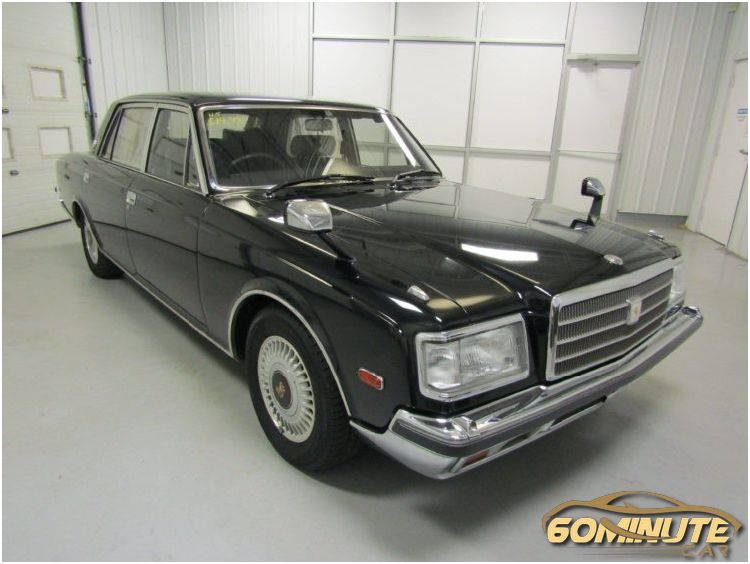Should You Lease a Car?
Although there are many financial implications in deciding on whether to lease or buy a car, money should not be your only factor to consider before you pull the trigger.
In addition to the monetary factors, your lifestyle, personal taste and your credit score should also play a big role when deciding whether to lease or buy a car. To lease or buy a car is a decision wholly guided by your goals, personal preferences, and budget. The processes have their benefits – the key is to define which matter the most.
Before starting a search for your next vehicle, always take your time to determine what you want from it, and let these factors drive your whole decision-making process.
Also, small businesses have different tax advantages at their disposal, including business deductions. One of these deductions is directly related to business cars in regard to their monthly lease payments or loan payments. Some business owners have cars wholly dedicated to their personal use while others use their cars in their businesses. You, as a business owner, have the power to take the option that suits you best in regards owned or leased vehicle.
Remember, in terms of car insurance, premiums are favorable when you buy a car as opposed to lease deals, but the monthly loan payments are higher. On the other hand, when you buy a car, be sure of a huge down payment.
This article will discuss the two sides of the lease or buy debate and help you decide which option is best for you.
Monthly Loan Payments Versus Monthly Lease Payments
When you decide to buy a car, you take an auto loan for a specific amount that you have to service even if the value of the car depreciates below the loan value. For instance, if the car is involved in an accident, its value goes below its purchase amount. On the other hand, with lease deals, the residue value when the lease term or lease contract elapses, lowers the cost of the lease. Additionally, if you had a closed lease, you can get away with the penalty.
Remember that to get car tax benefits, you must prove that the car has been driven at least 50% for business purposes. Also, only the business driving portion of the buying or leasing cost will be deducted as an enterprise expense.
Buying Versus Leasing a Car for Business
Below are some comparisons or factors you should know when choosing how to finance a car for your business.
Ownership
Car ownership is a factor to consider when acquiring a new car because tax benefits are different between individuals and business cars. A leased car will typically attract no tax benefits, but a wholly-owned vehicle will attract depreciation deductions. Note that, depreciation is a deductible expense from the car cost that is spread over the car’s usable lifetime. Accelerated depreciation can also be present for business vehicles, these will increase the amount of deductible expenses. Before you acquire an auto loan to finance your car, your credit score will play a big role.
Initial Cost
The upfront cost when you lease or buy a car is different in terms of down payments versus the first monthly payments or security deposit. Thus, you should consider these on a case-by-case basis.
Mileage Limits
You can deduct the mileage costs for both leased or purchased cars in regard to monthly payments. Higher mileage limits for owned cars can adversely reduce their resale value. Lease contract include mileage limits too. You are given a mileage limit that you can be penalized in case you exceed.
Wear and Tear
Excessive wear and tear on a car that you own can decrease the resale value for your vehicle. These include all the little wear and tear that is visible on the body of the vehicle. When you have leased a car, excessive wear and tear attract some charges.
End of the Term
When you have fully purchased your vehicle, (having fully serviced your monthly cost or in the process), you can do what you want with the same. Remember to acquire a gap insurance for your car in case an accident occurs before you finalize your loan payment. But with lease deals, you can decide to return it to the owner or buy it when the lease contract expires. Your dealer may give you the option of leasing another car.
Which Option is Favorable – Buying or Leasing?
The monthly loan payments and lease payments that accrue when you lease or buy a car is a big factor to consider. Remember that the monthly cost of buying is higher than the monthly cost of leasing because the latter does not include the vehicle’s purchase price or cost.
Why should you Lease a Car?
Do you wish to lease a car and don’t know how to go about things? Here are the advantages that come with leasing a car.
Low Monthly Payments
It is a fact that the monthly payment of leasing a car is lower than buying one. There’s little or even no down payment that is required. Also, no upfront sales taxes that you are required to pay. But you may be required to pay some extra cost in addition to the lease payments when you return a leased vehicle if you exceed the mileage limit, introduced excessive wear and tear, or you have terminated the lease contract earlier than stated. However, you will not be required to go for auto loans to finance a car for your upfront car payments as the monthly payments are manageable.
The Amount Payable is only Tied on the Depreciation
When you enter into vehicle lease deals, you have rented the car for a fixed term (lease term). The monthly lease payments that you pay is calculated on the expected monthly depreciation from the leased vehicle (remember, different models, come with different rates). You are only responsible for the depreciation that occurs during your car’s lease term ensuring that at no occasion will you be “upside-down”. An upside-down situation is when you as the car owner owe more than the value of the vehicle.
Few Repair Expenses
Some manufacturers extend warranties to the car leasers. If you are covered by this type of warranty, you will always be at ease and never worry about unexpected repair bills occurring from the car’s wear and tear. But you are sorely responsible for the daily car upkeep including maintenance, and the amount of car insurance. Besides, unless you incur excessive wear and tear, you do not worry about any wear and tear cost of a leased car.
Often Drive a New Car
When you lease a car each year, you will always enjoy the benefits of driving up to date leased vehicle with more and more advanced technology, safety, and comfort, but at a fee—the monthly payments throughout your lease term.
No Hustle of Reselling the Vehicle
Once lease deals are closed, or the lease term has expired, you can return the vehicle or start a lease deals with a different car. You forget about the car you had and the hustles of getting a fair trade-in value. You may also have the option of buying the vehicle if the purchase price is fair according to the way you used the vehicle. You have all the car’s information to make an informed decision about the vehicle’s current purchase price.
No Loan Approval is Required
If your credit scores are not impressive, you may not be approved for an auto loan or you may be required to pay an exaggerated car loan interest. The lease contract will not be that strict to your credit score status when leasing cars as they can easily recover their vehicle if you violate the lease contract by either failing to pay the monthly lease payment among others.
Advantages of Buying a Car
The monthly car loan payments are largely higher than the monthly lease payments. But with every month’s loan payment, you go a step near to owning the vehicle and you can build future equity when you decide to trade it in or resell the car. Buying and owning the car and driving it for a long period is the cheapest way of owning a car. The longer the period you drive the car, the less it cost. But if you choose to acquire gap insurance, then you will cater for these expenses.
You have the Option of Reselling your Car
When you buy the car, you are the owner and you have the full flexibility of reselling or trading it in. You are not locked into any ownership period (lease term) like it is with a leased vehicle. You are always aware of your car’s purchase price meaning you can trade it in at you will.
No Mileage Limits
As a car owner, you are free to drive your car as many miles as you want— no mileage limit. Should you lease a car, be sure of mileage limits and caps that attract a lot of charges when exceeded.
No Car Appearance Restrictions
You can choose to use your car in any condition. If you want to use your car even not in the perfect condition, then buy it. Also you can opt not to acquire a gap insurance if you are financially stable.
Bottom Line
When you finance a car you own it. On the other hand, when you lease a car you have borrowed it for a fee – simply, leasing a car is renting a car.
Should you rent a car? Should you buy a car? If yes.
Feel free to drop your comments or feedback below.
Hey, how’s it going, my name is Dan. I used to work at the biggest dealership in the country and now I teach fine folks like you how not to get F•••ed when buying a car. Kind of a cool gig, huh? Now in this video, I want to show you a couple of reasons why you should leave the car and ninety nine reasons why you shouldn’t lease the car. So let’s dive into it. I call leasing fleecing. For those of you that don’t know what fleecing is, that’s when you cut the sheep’s hair and sheep has no hair and you take that hair, sell it, make some money. And that is exactly what dealerships are doing. They’re taking the best thing they can can get from you, which is your money and give you this car that’s gonna be worth a lot less by the time you’re done with it. All the profits that they’re going to make on this car, you are going to cover, you are going to pay for them in first three or four or five, however many years you’re planning to lease the car. So my personal opinion really quickly. Don’t lease a car unless I’m going to go. A couple of things at the very end. There’s two or three reasons why you should lease a car. So, number one, they’re going to tell you you should lease a car because you will get to drive a more expensive car. You don’t even know. I mean, I am rolling up my sleeve. I’m so F•••ing angry. You don’t even know how angry I get when I see somebody still in a twenty or twenty five or someone in early thirties.
You should buy an expensive car because you’ll look good. People will respect you. It’s it’s OK that you don’t having your F•••ing balls. Drive an expensive car. Pretend something you’re not. No. Stop that. OK. Let’s come down here a little bit. If you ever are thinking about leasing a car that you can’t afford, then you think you’re gonna be able to afford it because you lease it. Don’t buy that car, dude. There’s more important things for you to drive a want to be F•••ing Mercedes or a one to be car that you can’t afford right now. It’s more important for you to stack that paper. It’s more important for you to grind, to hustle a makeshift happen. I’ll drive an eight thousand dollar car and build a business on the side instead of driving your F•••ing Mercedes for a hundred thousand dollars or Audi for fifty or some kind of fancy truck and pretend something I’m not. But that’s up to you if you got money to burn. Leasing is the right way for you. Second thing dealerships are going to tell you is you can have a car for lower monthly payment. Well, if you have a problem with the monthly payment or you’re looking for a low monthly payment, should you be buying a used car? Makes sense, doesn’t it? It only makes common sense if you can’t buy something new. You should probably buy it used. We have Craigslist. We have eBay. We have used car dealerships. We have a bunch other place. We have AutoTrader. We have cars dot com. I mean, the places where you can get cars is unlimited.
There is so many places where you can get cars. If you’re thinking about monthly payment, that means you’re in a budget. If you are in the budget, you’re probably don’t have a money tree in your back. You probably have not won a lottery. And if you’re in a budget, then it makes sense for you to put money where it’s more important compared to where it’s least important. And buying a cool new looking car that’s least important. More important is for you to have money in the bank. It’s more important for you to have cash. It’s more important to take care of your family. It’s more important for you to take care of your whatever the situation you’re in. Whatever you’ve got to pay for college loans or you’ve got to pay for a house or whatever you have to do. It’s more important for you to have money than it is to drive a fancy car. Buy a used car. And they have a few videos that are dedicated just buying used cars and why you should buy a used car.
Next one. Very limited on mileage. The cars are very limited, our mileage. You can drive a lot if you’re planning to drive a lot like ever. OK. Road trips, not something you’re going to do. Roll over. Forget about that. Lift Postmates. Nope. You’re trying to make some money in your car. You can’t do that anymore. You got to you’ve got a lease car that you got ten twelve thousand miles. You know how much twelve thousand miles is has barely anything. When I was driving, I was driving eighteen thousand miles a year. Yeah, I do driving when I drive. I have a car for a F•••ing reason. Let’s put it to use. Next they’re going to tell you you’ll have to pay for repairs. Well there is a very simple solution to that. You buy a good quality car, a reliable car that you won’t need to do repairs on in the first place. You buy a car that has a good reputation. That’s Japanese cars, typically. We’ve got Honda. We’ve got Toyota. We got Mazda. We’ve got Lexus. We’ve got Acura. Right. We’ve got Infiniti. We have Honda. We’ve got Kia. And we’ve got Genesis from Honda. We have nine extremely reliable brands, very reliable. And Neeson today mentioned you, son. Why would we go and buy a brand new car when the older car.
A car that’s three or four or five years old is going to be just as reliable as a car. That’s brand new. Because these are quality cars. This argument that no repairs is is absolutely stupid, of course it’s not going to have no repairs. Of course, I’m not going to need any repairs on the new car. Well, if I buy a quality car, I’m not going to do repairs either. But the quality car that’s older, that’s three or four years old is going to be much, much cheaper. Next. You still have to pay for maintence. I mean, that’s the bottom line. You’re still going to have to pay for maintence, some dealership will pay for maintenance like oil change. Holy S•••. Oil change. Now, these days you have to do oil change every six months. If you can’t like, that’s not even the thing. That’s like saying they’re going to give you an air freshener or oil change like $50 one hundred dollars a year. If that’s a hundred dollars a year is an actual real sum of money that you’re worried about. I think finding a job, not finding a car is priority. But let’s move on. Next, they’re going to tell you that you should be leasing a car because you’ll pay less taxes.
What kind of crack are they smoking in? Why have they not shared it with me yet? How are we going to pay less taxes on the leased car? You’re going to pay the same amount of taxes, but instead of paying taxes on the whole amount of car, you’re just going to pay taxes on the monthly base. You’re financing a car anyways, ways like ninety nine percent of people finance cars anyways. They’re they’re doing that already. Yeah, I’m not sure how this. This is the biggest lie. They can tell you less in taxes. No, you’re not going to scam the government. The government knows how to take your money. They have been doing it for a couple of hundred years. They are really good at it. Next gap insurance. OK. Some dealerships will tell you you don’t have to pay gap insurance. OK. You know how much gap insurance is, seven dollars a month, seven dollars a month on Gap insurance? Well, I have a solution for that also. I’ll buy a used car where I don’t have to buy gap insurance. For those of you that don’t know what Gap insurance is, that’s guaranteed asset protection.
OK. So if you buy a car brand you or lease at thirty five thousand dollars three months later, you get into a car accident. If you don’t have gap insurance, your insurance company is looking at your car and they’re like, dude, you got a three month old car with couple of miles on it. OK, we’re only going to pay you what the market price is on that car and that is thirty thousand dollars. And you’re like, S•••. I got $5000. What am I going to do with that? So this is where Gap Insurance comes in. OK. You get Gap insurance, which covers you. The difference between what you owe on the car, on the boat, on the F•••ing motorcycle, on jetski, whatever, it doesn’t matter. And what the actual value of whatever you button in this example, a car is. OK. So when you’re buying a new car, or at least in the car, when you’re buying a new car, you have to pay gap insurance. When you leave the car, you don’t have to pay gap insurance. OK.
Just buy a used car. The whole point of getting a leased car is so you save some money. Well, should you be saving money for a long term? You’re not going to be driving a car for three years and then you’re going to get abducted by aliens. You’re still going to be driving a car for many, many, many, many, many decades ahead. You’re going to be driving the car until you die. So why not buy a car that is going to last you long term? OK. You can buy a thirty thousand dollar car and make $400 a month payment. Or you can buy a used car. Save thirty thousand dollar car. Same car. Just three or four years old for fifteen or sixteen or seventeen thousand dollars. And guess what? You can make payments that are much, much, much, much less. That’s number one. And here’s the cool thing. You’re gonna be able to sell that car that you own with the least car. You can sell it. You make payments. You don’t own it. With the car that you’re owning, you can sell it even once you put 100 or 150 thousand miles on it. I mean, how many cars on Craigslist you see with a hundred and seventy thousand miles still selling for three or four or five thousand dollars? I mean, car is still worth money, so it’s better to own the car and still be driving the car so you can sell it afterwards.
Well, what about repairs? You buy a good quality car, good quality car. You just buy good quality cars. Pretty simple if some you are worried about repairs in the older car, you buy good quality cars. That is the only thing I can say. I would never recommend you buy a Mercedes and Audi, a F•••ing Porsche or Fiat or something like that, because they’re extremely unreliable. I’m telling you, go out and buy a boring car and make money once you’re F•••ing rich. Go out and buy whatever the F••• you want. Next, if you’re a military, all right, there’s a lot of dealerships that will try to a F•••ing lease if you’re in military because they’re telling you, you know what, you might get deployed and you know what, you might get deployed. Would you rather have a car to come back to or would you rather go to another F•••ing dealership and negotiate for another car when you come back? Do you want to have a car ready and waiting for you? Or do you want to come back and go to a dealership and start looking for another F•••ing car? What about making payments on the car while you’re away? First, if you’re deployed, you’re making some money.
OK. Number one. Number two. Do you have friends or family at all? Guess what? They can drive that car. You can put them on insurance, full coverage and they can be driving that car. You have a mom, you’ve got a dad, you got brothers, sisters. Give him that car. Let them make payments on it. Very simple. Once you come back, you and my S••• back. That’s it. Worst case scenario, you make payments on it. You don’t like you come back and you sell that car. That’s not a big problem. Let’s say that you don’t want to be dealing with none of that. Right. You buy a car. Let’s say you buy a car, you get deployed six months later. How many buddies on on the base would love to buy a good quality car without having to go through bullS••• of negotiations, going to waste their time at the dealership. A lot, a S••• ton. I don’t know everybody because nobody likes to go to the F•••ing dealership. You can sell your car on base like this. Oh, right. Now here’s another one. Foreign exchange students. If you’re foreign exchange student dealerships love to scam you and tell you. Hey, Lisa Carr, you’re gonna be here only for three, four, five, six, seven, eight years and get rid of that car.
Bad idea. Very bad idea because you’re gonna be paying so much for their car is gonna be cheaper for you to buy a car even if you’re a student. Leasing a car is a really bad idea. Let’s say you, Lisa, Honda Civic at twenty thousand dollars. What are you gonna do with that? Honda Civic, five, six, seven, eight years later, once you graduate, you’re going to have a great job. Sixty, seventy eighty thousand dollars a year, maybe even $100000 a year at 80 grand a year. You’re not gonna be wanting to drive a Honda Civic, but you bought a brand new Honda Civic. What are you gonna do? You have to keep it in gear and get that money out of it. You know, drive it until it falls apart. Or if you’re smart, whether you’re just a student or exchange student, you buy the really cheap car for about seven thousand dollars with sixty thousand miles. And guess what? Drive it, drive it, drive it. Once you’re done, once you’re out of college, the car is dead. You only paid like hundred fifty one hundred twenty dollars a month for it. And you can go out and buy yourself a fancy car with your new job. I’m only trying to help you really.
Now, here are a couple exceptions. Number one, you can write off lease expense as a business expense. This is really smart. If you have a business, then leasing is a good idea. OK. Especially if you’re not driving a lot of miles. Here’s the trick, though. You won the lease. Used cars, not bring you ones. There’s plenty of places where you can you can lease a used car if you’ll need lease a used car for, let’s say, 5, 7 years. Well, by the time you’re done paying off leased car, it’s paid off. You could have paid twenty thousand dollars in taxes or you got a free car. So here, leasing used cars for business is absolutely great idea, do it. Another reason you could lease a car is if you’re leasing the car, bring you right. And you’re getting 30 to 35 percent off the sticker price, and that’s how you know, you’re getting for invoice because dealerships have over 30 percent of profits, sometimes as high as 50. So if you’re getting 30, 35 percent off a car price. Yeah. This is a good car to lease and then own it. And then sell it because we always want to get some money for that car back. OK. Don’t let that you should make the profit you’ll make.
Be smart. I’m on your side. Don’t tell anybody.
All right. This is Dan with 60 minute car. I’m signing out and I’ll see you on the Internet.

